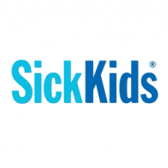Advancing My Leadership Skills: Exploring How to Develop a Clinical Practice Guideline

Summary
Over the past 4 years of working in SickKids’ Emergency Department (ED), I discovered that the rate of hemolysis of our blood work specimens were disproportionally high relative to the rest of the organization. The ED has the “one and done” approach of inserting PIVs during blood draws in order to “save a poke” later on. Drawing blood from a PIV is one of the leading causes of hemolysis but strict methodology and consistency in practice can reduce the risk. Through research and a needs assessment, it was concluded that reducing hemolysis could be done in two ways: 1) reducing the amount of blood work drawn from PIVs by stepping away from the “one and done” approach, and 2) create a policy and procedure on how to obtain blood work through peripheral intravenous (PIVs). Best practice is obtaining blood work through separate venipuncture but since that is not always feasible due to the distress multiple needle pokes can cause to the pediatric population, having a policy will allow for improved patient care. Obtaining the best blood work sample, free of hemolysis, clotting or contamination, to represent the patient’s clinical status at the time of draw, will allow clinicians to optimize patient care so they receive the right intervention at the right time. Therefore, I drafted a policy on how to take blood samples from a PIV.
My overall learning goal from this fellowship was to advance my leadership skills in program policy development. I wanted to learn how to develop an official hospital wide policy and become familiar with the steps required to get it approved for use. Through this fellowship, I was able to write a literature review, gain exposure to Quality Improvement processes, network with stakeholders, learn how to navigate the world of online meetings, present my findings to colleagues in an engaging manner, and draft a policy and procedure. I have developed and strengthened many skills through my journey such as data analysis, critical thinking and time management.
Outcomes
By improving the quality of blood samples sent to the lab, we are able to get a more accurate picture of the patient’s clinical status. Hemolysis leads to delay in patient care (awaiting repeat blood work) or unnecessary interventions (acting upon a false result). This fellowship also allowed me the opportunity to connect with SickKids Patient and Family Advisory Council who were able to share their experiences with blood work and IV in the Emergency Department. This meeting provided recommendations on how to improve patient care when dealing with needle pokes such as better communication and more transparency with care plans. These recommendations were relayed to both the nursing and physician group.
During my needs assessment, it was found that my colleagues approached the same tasks with multiple variances. A new policy drafted will allow consistency in nursing practice. It will be shared with existing nurses as well as be incorporated into ED orientation sessions for new hires. It is the hope that this policy will be used hospital-wide so all nurses will be able to perform this procedure on other units. I’ve also worked closely with the ED physician group to re-evaluate the thought process in ordering IVs so as to ensure the right patient is receiving the right intervention at the right time.
Overall experience
The ACPF fellowship has allowed me to step outside of my comfort zone of clinical bedside nursing and into the world of leadership in a safe and supportive manner. I had the opportunity to network with people I would have never met and learn about the behind-the-scenes processes that are involved in policy development. I am proud of the policy that was created and I hope it will improve patient care in the future. I want to thank my mentors Carrie Glanfield, Darlene Murray, and Dr. Tania Principi for guiding me on this journey. Without them, this fellowship would not have been successful. I also want to thank my manager, Laurie Spooner, and the rest of my Emergency Department colleagues for your support and encouragement. This experience has made me realize my interest in quality improvement and I hope my nursing career will lead down a path of evolving and improving health care delivery in order to provide quality patient care.
